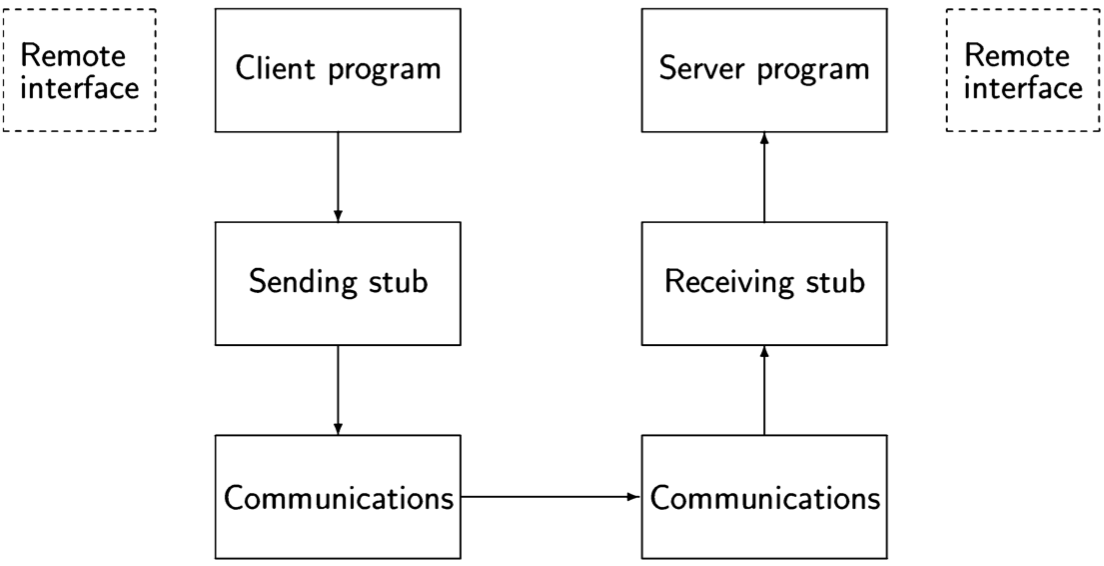Remote procedure calls
Remote procedure call (RPC) is a construct that enables a client to request a service from a server that may be located on a different processor. The client calls a server in a manner no different from an ordinary procedure call; then, a process is created to handle the invocation. The process may be created on the same processor or on another one, but this is transparent to the client which invokes the procedure and waits for it to return. RPC is different from a rendezvous because the latter involves the active participation of two processes in synchronous communications.
RPC is supported in Ada by the constructs in the Distributed Systems Annex and in Java by the Remote Method Invocation (RMI) library. Alternatively, a system can implement a language-independent specification called Common Object Request Broker Architecture (CORBA). Writing software for distributed systems using RPC is not too difficult, but it is language-specific and quite delicate. We will just give the underlying concepts here and refer you to language textbooks for the details.
To implement RPC, both the client and the server processes must be compiled with a remote interface containing common type and procedure declarations; the client process will invoke the procedures that are implemented in the server process. In Java, a remote interface is created by extending the library interface java. rmi. Remote. In Ada, packages are declared with pragma Remote__Types and pragma Remote__Call__Interface. The following diagram shows what happens when the client calls a procedure that is implemented in the server:

Since the procedure does not actually exist in the client process, the call is processed by a stub. The stub marshals the parameters, that is, it transforms the pa- rameters from their internal format into a sequence of data elements that can be sent through the communications channel. When the remote call is received by the server, it is sent to another stub which unmarshals the parameters, transforming them back into the internal format expected by the language. Then it performs the call to the server program on behalf of the client. If there are return values, similar processing is performed: the values are marshaled, sent back to the client and unmarshaled.
To execute a program using RPC, processes must be assigned to processors, and the clients must be able to locate the services offered by the servers. In Java this is performed by a system called a registry; servers call the registry to bind the services they offer and the clients call the registry to lookup the services they need. In Ada, a configuration tool is used to allocate programs to partitions on the available processors. Again, the details are somewhat complex and we refer you to the language documentation.